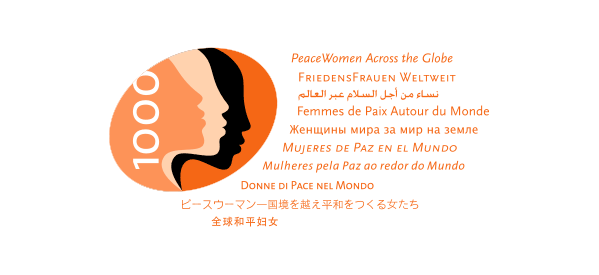Pressenza is delighted to start publishing the articles of 1000 PeaceWomen. We start with an article from their latest newsletter.
One of the major obstacles to achieving a culture of peace and ensuring gender equality is a problem that still plagues societies everywhere: Violence against women (VAW). Across regions, women face physical and sexual violence in their homes and during conflicts, they bear the brunt of exploitation and are forcibly trafficked. The violence has many faces. The PWAG regional projects aim not only to conduct country-specific activities, but also to foster a cross-regional learning and exchange of experiences in tackling this global issue.
Concrete Efforts to Tackle VAW in Indonesia: Women Survivor Learning Forum
Despite national and regional regulations in Indonesia since the country’s transition to democracy over a decade ago, VAW is an alarming reality in big cities such as Jakarta, but also on the many islands affected by violent conflict. Indonesia is also a source and transit country for thousands of women used for commercial sex and forced labour. «There were almost 114’000 cases of domestic violence reported to the National Commission on Women in 2011. However, so many more cases of violence go unreported», recalls Indonesia’s Regional Coordinator Olin Monteiro. The Women Survivor Learning Forum, created in 2011 by the local PWAG office, is a concrete effort to address the problem together with women survivors of violence and local government. The women gather documentation of national and international activities that can be used as lessons-learned for Indonesian women survivors. The international solidarity network, including women in Latin America and the Caribbean, play an important role in this project.
Addressing Different Faces of Violence in Latin America and the Caribbean
VAW remains a common phenomenon across the Latin America and the Caribbean region with crimes against women such as trafficking, rape and femicide often going unpunished. «Improving national legislation and concrete national action plans for the implementation of international conventions such as UNSCR 1325 are crucial for the protection of women’s rights», says Regional Coordinator María Julia Moreyra. Access to legal services for women should also be ensured. The specific needs of women facing violence in areas of present-day conflict such as in Colombia, or women coming to terms with voicing violence of the past such as in Uruguay, as well as those increasingly vulnerable in displaced camps following the natural disasters in Haiti, are also addressed by the project in Latin America.
According to United Nations statistics, one out of four women in Brazil has experienced some form of violence, often very close to home by a relative or partner. Brazil also reports high murder rates among women and with its size and numerous borders, trafficking in women and girls also take on continental proportions. Since 2012, PWAG aims to campaign against societal violence working on perceptions of unequal relations between men and women as well as policy makers using a popular education methodology. The Coordinator Vera Vieira includes: «We hope to be able to extend the use of this methodology to all aspects of violence, including trafficking in women».
Ending violence against women begins by promoting a more peaceful society. Women of PWAG are taking steps towards helping to create this environment by trying to raise awareness among women themselves, support survivors, inform society and lobby government so that this global problem is brought into the foreground and back onto the agenda of decision makers and societies across these regions.






